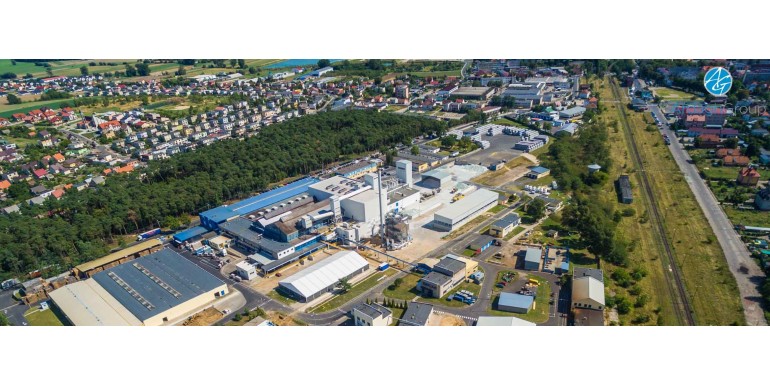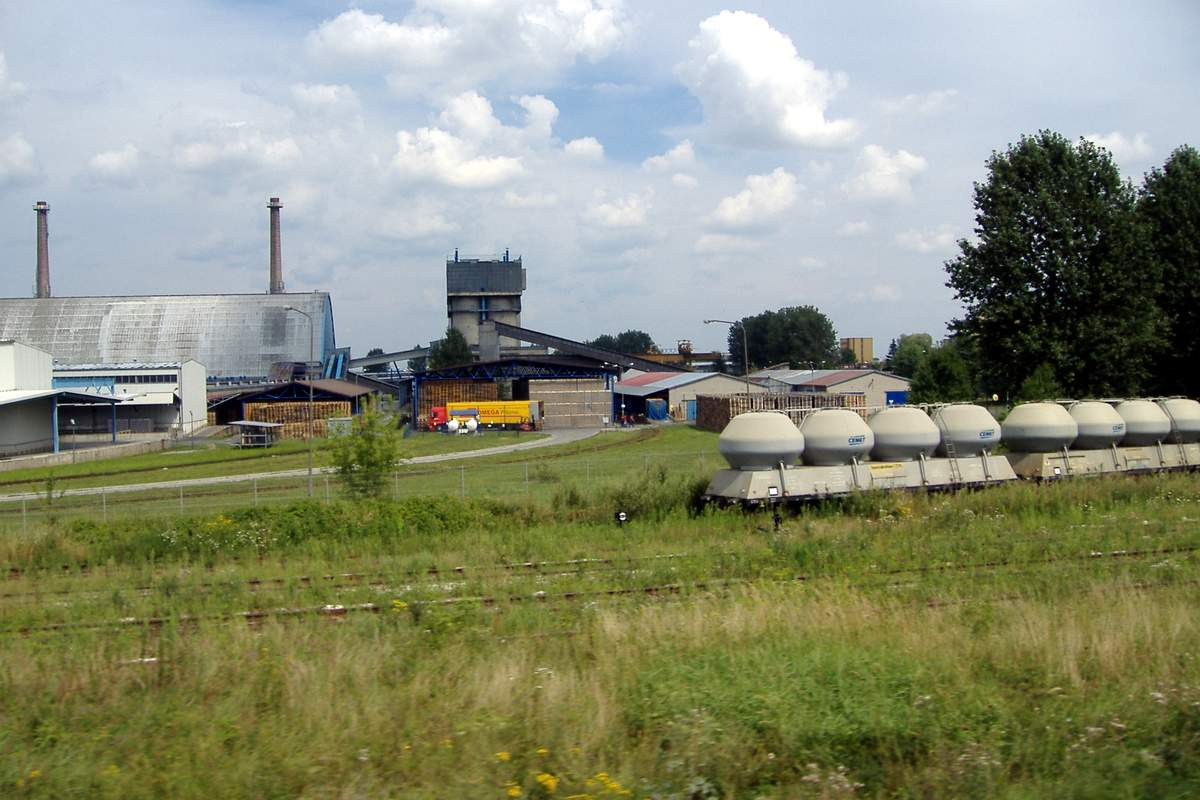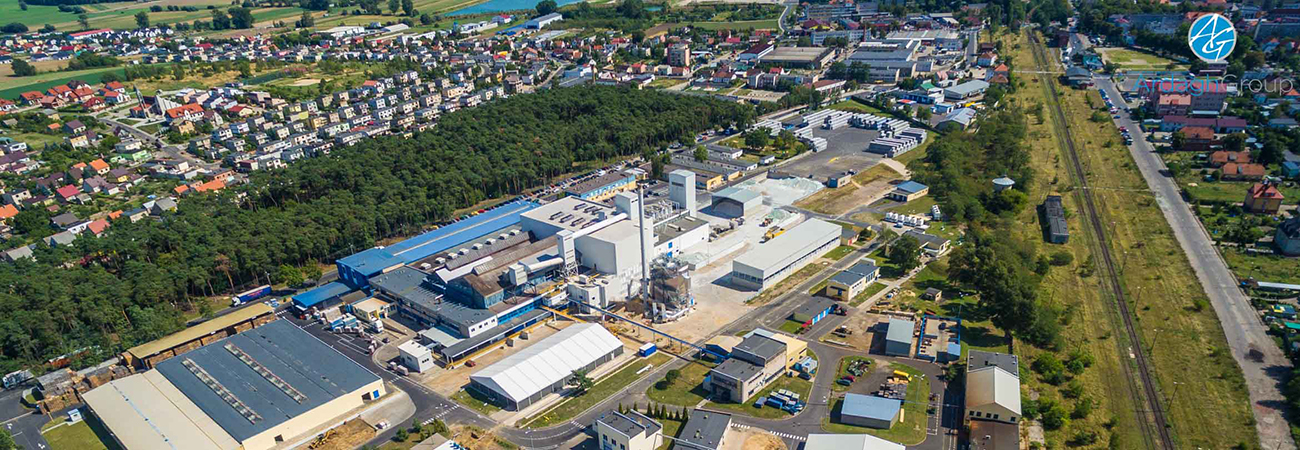Glassworks in Poland

Polish glass has not only a rich tradition, but also enormous potential. The versatile raw material has been recognized on the local and foreign market. In the International Year of Glass, we present the most important packaging producers whose glassworks are located in Poland.
A brief history of glass
Glass, like matches or glue, was created by accident. Many sources report that Phoenician merchants smelt them in a fire, into which a little sand got into it. Apparently, there is a grain of truth in every rumor. This grain may turn out to be silica. Silica is a raw material for the production of glass material. Its chemical structure consists of an amorphous alloy of silicon dioxide SiO2 and oxides of metals and non-metals. However, the sodium-calcium variety is more popular. It is characterized by lower production costs and versatility. Other common types of glass are lead glass (intended for the production of crystal vessels) and borosilicate glass (used, among others, in optics). In addition, Glass Furnance use the so-called glass cullet. Recycled raw material is essential in a circular economy. It is worth noting that the first panes were not as transparent as today. Due to the contamination, it was much easier to produce colored glass.
The European Union is one of the largest glass producers in the world. According to the data of Glass Alliance Europe, the production of this material in 2020 amounted to as much as 36.8 million tonnes. The percentage distribution of the individual sub-sectors is as follows: 60.4% - container glass (glass jars and bottles); 29.2% - flat glass; 5.3% - glass fibers (reinforcement and insulation); 3.2% - tableware; 2.1% - specialized glass1. The domestic manufacturing industry produce approximately 1.8 million tonnes of glass packaging annually. Poland ranks second in the EU countries.
Glass production in crisis
Recent years have been a difficult period for the economy. The climate crisis has affected almost all of its branches. Prices of CO2 emission allowances in 2021 reached a record level, and in the last quarter they exceeded EUR 90 per ton. For the first time in history, such an intense increase in the value of allowances was recorded (EUR 32 within 6 weeks)2. One of the key reasons for this phenomenon should be the increase in gas prices. The situation is exacerbated by the pandemic. Western Europe is giving up investment. Old glass furnances are extinguished and glass containers are imported from abroad. At such moments, the largest producers join forces. The joint project involves the construction of a special hybrid glass furnace that uses mostly renewable electricity. Total CO2 emissions are expected to be halved, and by a further 5% thanks to the high-cullet technology. In 2019, Owens-Illinois initiated the renovation of two bathtubs at the O-I smelter in Poznań (Antoninek) and launched a completely new line in the Jarosław smelter. The total market value of glass packaging worldwide is projected to increase from $ 51.2 billion in 2020 to $ 69 billion in 20273.
The Employers' Union "Polish Glass" associates companies active in the industry since 2003. In the container glass category, it lists 5 companies: O-I Produkction Polska S.A., C.P. Glass S.A., Stoelzle Częstochowa Sp. z o.o., BA GLASS POLAND Sp. z o.o. and Ardagh Glass S.A.
Owens-Illinois, Inc.
O-I is the world's largest producer of glass packaging. In Europe alone, it has 35 factories producing 5,000 types of bottles, jars and containers. The company's headquarters are in Perrysburg, Ohio. O-I is distinguished by innovative technological and product solutions. Since the beginning of 1900, when Michael Owens invented the automatic bottle making machine, more than 1,800 active patents have been issued. There is a modern Innovation Center next to the headquarters. In Poland, O-I has two glassworks and the O-I Business Service Center, which manages centralized administrative services for O-I's operations in Europe. The takeover of Huta Szkła "Jarosław" took place in 1993 and "Antoninka" in 1998. Today, the Jarosław glassworks is one of the most modern in the world. The own program helps to train young engineers.
Prometglass.com offers many glass products from Owens-Illinois, Inc, including:
JAR TO-373 FI 82, Bottle 330 JW PRY-OFF flint, Bottle 330 JW PRY-OFF amber, Bottle 500 Vichy NRW PRY-OFF, Bottle 330 EMMA TWIST-OFF flint, Bottle 300 SOK FI 38 flint, Bottle 500 PIWNA AMBER PRY-OFF.

Picture taken in Jarosław, 2006
© 2006 by Janusz Jurzyk, licence: CC BY-SA 3.0
CP Glass S. A.
CP Glass S. A. is a subsidiary of CANPACK S.A. and belongs to the CANPACK Capital Group in Krakow. At the beginning of its activity, it was involved in the production of beverage cans. The first line was launched in 1994 in Brzesko. Since then, the range has expanded to include: high-quality glass, glass packaging and crown closures (caps). Canpack cares about the sustainable development of its production plants in Orzesze (Poland) and Aurangabad (India). The company from Orzesze belonged to the Sosnowiec Glassworks and United Glassworks "Vitropak" in Poznań. In 2005 it was purchased by C.P. Glass S.A.and becoming part of the Canpack group.
Pry-off, twist-off, CPX closures are available in Prometglass.
Stoelzle Częstochowa Sp. z o.o.
The Austrian company Stoelzle Glass Group has been operating since 1987. It has 6 glass production plants in Europe and 1 in the USA, the largest of which is located in Częstochowa. High aesthetics of workmanship and attention to detail are its hallmarks. Stoelzle products are targeted at exclusive brands from the pharmaceutical, spirit and food industries. International standards in the field of work safety have been confirmed by the ISO 45 001 certificate. The "Paulina" glassworks (located in Wyczerpy Dolne) joined the group in 2001. The second Polish plant of Stoelzle Glass Group (since 2014) is located in the Lubuskie Voivodeship. In addition to jars, bottles and dishes, Stoelzle Wymiarki also produces glass candles.
Prometglass offers:
Jar TO-40 FI 43, Jar TO-140 FI 66 FLINT, Jar TO-545A FI 82
BA GLASS POLAND Sp. z o.o.
The Portuguese brand Barbosa e Almeida was established in 1917 on the initiative of Raul da Silva Barbosa and Domingos de Almeida. Thanks to the merger with Vidriera Leonesa SA, they created BA Vidrio, SA. In 2005 it changed its name to BA Vidro, SA (BA Glass I - Serviços de Gestão e Investimentos, SA). Today it manages 12 factories in Europe. Annually, it produces 2,300 tons of glass, which reaches 70 countries around the world. BA Glass Poland Sp. z o.o. was established as a result of the acquisition in 2012 of the Warta Glass group. Warta Glass group included 2 Polish glassworks. The first one is located in Sieraków (Greater Poland Voivodeship) and specializes in the production of super flint glass jars and bottles. The Jedlice enterprise (Opolskie Voivodeship) is famous for the production of food packaging and glass bottles for alcoholic beverages.
Ardagh Glass S.A.
The Ardagh Group is a Luxembourg glass and metal products manufacturer that started operations in 1932 in Dublin. Currently, it is one of the largest brands of this type in the world. It has 58 plants located in 12 European countries and the Americas. It produces, among others jars of various sizes, packaging for the pharmaceutical industry as well as spirits and beverages bottles. Brand focuses on innovation manifested in the complex shapes of the bottles, the methods of pressing and the finishing of the closures. Ardagh Glass S.A. consists of 3 glassworks located in Gostyń, Ujście and Wyszków. The subject of their production are transparent, green and brown packaging. In 2017 the Polish group created a new bottle of Łomża bright beer. In 2022 it won a special award in the prestigious Kaizen Award Poland competition.
Promet offers:
Jar TO-235 FI 82, Jar TO-300U, Jar TO-330 FI 82, Jar TO-370/3 FI 66, Jar TO-500/8 FI 82, Jar TO-540/8 FI 82, Jar TO-720-2 FI 66, Jar TO-815 FI 82, Jar TO-900/1 FI 82, Jar TO-900/4 FI 82, Jar TO-2650 FI 100, Jar TO-4250 FI 100.

Source: https://www.ardaghgroup.com/poland-pl
Zignago Vetro
Zignago Vetro S.P.A. Headquarters is located in Italy, but its production units are also located in France and Poland. Since 1950 it has managed to establish a strong position on the market of glass packaging in the field of food and cosmetic industry. An important moment in the company's development process was the addition of Verreries Brosse (now Zignago Vetro Brosse) in 2002. Huta Czech S.A. (located in Trąbki, Pilawa commune) was taken over in 2011. Zignago Vetro Polska is an important part of the concern, which deals with the production of: bottles for various industries, food jars and packaging, as well as glass stoppers. The portfolio includes many well-known brands such as Bulgari, Lancôme, L'Oréal and Barilla. The Polish plant was established in the 19th century on the initiative of Ignacy Hordliczka - a Czech who was the first in the Kingdom of Poland to start producing luxury glass.
Dekorglass DZIAŁDOWO S.A.
Dekorglass DZIAŁDOWO S.A. is a brand known primarily for unique glass decoration techniques. It has been producing packaging for a short time. Thanks to the support of activities within the Warmia and Mazury Special Economic Zone, it has become possible to expand the plant. Since 2019 the company has been operating in the area of Działdowo, Komorników (Warmian-Masurian Voivodeship) and Huta Tur (Kuyavian-Pomeranian Voivodeship). It manufactures glass bottles with a capacity from 10 to 3000 ml, intended for the cosmetics and alcohol industry.
Ciech Vitrosilicon
Ciech Vitrosilicon belongs to the international chemical group Ciech S.A. It was established in 1988 on the basis of Żagańskie Huty Szkła, which was the third largest packaging glass factory in Poland. As the only company in the country, it produces COMFORT jars (capacity from 255 ml to 1100 ml) with a glass lid and a swing-top closure. The company also produces glass candles. It has two production plants: Plant in Iłowa and Plant in Żary.
Luxury brands are convinced of the valuable properties of glass. Bottles and flasks are also an inseparable element of the alcohol, cosmetics and pharmaceutical industries. The energy transformation could significantly reduce carbon dioxide emissions and contribute to a wider use of the raw material. Food and drink producers need support. An innovative solution is the use of labels with a special ink that facilitates recycling. Joint activities can have a positive impact not only on the packaging industry, but on the entire economic sector.
1. Europejski Komitet Ekonomiczno-Społeczny, Przemysł szklarski w Europie.
2. https://handel-emisjami-co2.cire.pl/artykuly/opinie/trudny-rok-na-rynku-eu-ets.
3. https://www.statista.com/statistics/1154217/global-market-size-of-glass-packaging/.





